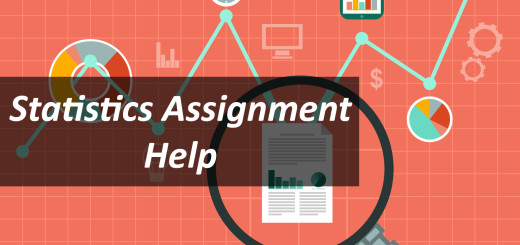How to Write an Effective Economics Assignment
Economics assignments require a unique blend of analytical thinking, theoretical understanding, and practical application. Whether you’re tasked with an essay, research paper, case study, or data analysis, mastering the art of writing in economics involves specific strategies and approaches. This comprehensive guide provides step-by-step instructions and tips on how to write an effective economics assignment that is clear, well-structured, and academically rigorous.
Understanding the Assignment Requirements
The first step in writing an effective economics assignment is to thoroughly understand the requirements outlined in the assignment prompt. Pay close attention to the topic, objectives, format, length, citation style, and any specific guidelines provided by your instructor or academic institution. Clarify any doubts or questions you may have before proceeding with your research and writing.

Choosing a Topic
Selecting a relevant and engaging topic is crucial for an effective economics assignment. Consider your interests, knowledge level, and the scope of the assignment when choosing a topic. You may focus on a specific economic theory, policy issue, industry analysis, market trend, or case study. Ensure that your chosen topic is specific enough to allow for in-depth analysis while also offering opportunities for critical evaluation and discussion.
Conducting Research
Research forms the backbone of any well-written economics assignment. Utilize a variety of reputable sources such as academic journals, economic databases, government reports, books, and industry publications to gather information and support your analysis. Take thorough notes, annotate sources, and organize your research materials effectively. Pay attention to relevant data, statistics, empirical studies, theoretical frameworks, and expert opinions related to your topic.
Analyzing Data and Information
If your economics assignment involves data analysis or empirical research, ensure that you approach the data with rigor and precision. Use appropriate statistical methods, econometric techniques, and economic models to analyze data and draw meaningful conclusions. Present your findings clearly and concisely, using tables, charts, graphs, and visual aids to enhance comprehension and illustrate key trends or patterns.
Crafting a Thesis Statement or Argument
Develop a clear and concise thesis statement or argument that encapsulates the main focus or hypothesis of your economics assignment. Your thesis should be debatable, specific, and relevant to your chosen topic. It should guide the direction of your research and analysis, serving as a central claim that you will support and defend throughout your assignment. Take time to refine and articulate your thesis before proceeding with your writing.
Structuring Your Assignment
Organize your economics assignment in a logical and coherent structure that facilitates understanding and engagement. Follow a typical academic essay or research paper structure that includes an introduction, literature review (if applicable), methodology (for empirical studies), findings or analysis, discussion, and conclusion. Use clear and descriptive headings and subheadings to guide the reader through your argument and analysis.
Writing Style and Tone
Adopt a formal and objective writing style suitable for academic economics writing. Use clear, concise language and avoid unnecessary jargon or overly technical terms unless essential for clarity. Demonstrate your understanding of economic concepts, theories, and principles while also engaging your reader with insightful analysis and interpretation. Maintain a balanced tone that is both analytical and critical, avoiding overly biased or opinionated statements.
Incorporating Economic Theory and Concepts
Integrate relevant economic theory, concepts, and frameworks into your analysis and discussion. Demonstrate your understanding of supply and demand dynamics, market structures, macroeconomic principles, policy implications, cost-benefit analysis, or other relevant economic theories depending on your assignment topic. Apply theoretical concepts to real-world examples or case studies to enrich your analysis and provide practical insights.
Using Evidence and Examples
Support your arguments, analysis, and claims with empirical evidence, statistical data, case studies, or examples from reputable sources. Incorporate quotations, data tables, charts, graphs, and citations to substantiate your points and demonstrate a deep understanding of the subject matter. Analyze and interpret evidence effectively to draw logical conclusions and contribute to the overall coherence and persuasiveness of your assignment.
Editing and Proofreading
After completing your initial draft, revise and edit your economics assignment thoroughly. Proofread for grammar, punctuation, spelling errors, and clarity of expression. Ensure that your writing is concise, coherent, and free from any ambiguities or inconsistencies. Check for logical progression, smooth transitions between paragraphs, and adherence to the assignment requirements. Seek feedback from peers, instructors, or writing centres to improve the quality and effectiveness of your assignment.
Citing Sources and References
Accurately cite all sources, references, data sources, and statistical methods used in your economics assignment according to the specified citation style (e.g., APA, MLA, Chicago). Include in-text citations for direct quotations, paraphrases, and data sources to avoid plagiarism and give credit to the original authors or sources. Create a bibliography or references list that follows the formatting guidelines of the designated citation style.
Finalizing Your Assignment
Before submitting your economics assignment, review all requirements, guidelines, and formatting instructions one final time. Make any necessary revisions or improvements based on feedback or self-assessment. Ensure that your assignment is well-structured, thoroughly researched, effectively argued, and free from errors. Proofread your work meticulously to catch any overlooked mistakes. Submit your assignment by the specified deadline, allowing time for final checks and revisions if needed.
Writing an effective economics assignment requires careful planning, research, analysis, and writing skills. By understanding the assignment requirements, choosing a relevant topic, conducting thorough research, crafting a strong thesis statement, organizing your writing effectively, incorporating evidence and analysis, editing and proofreading diligently, citing sources accurately, and finalizing your assignment with attention to detail, you can produce a high-quality and impactful piece of academic writing that demonstrates your understanding and proficiency in economics.



